'Chilestinian' resistance: how Chile became home to half a million Palestinians
Chileans are taking to the streets to call for Palestine's liberation
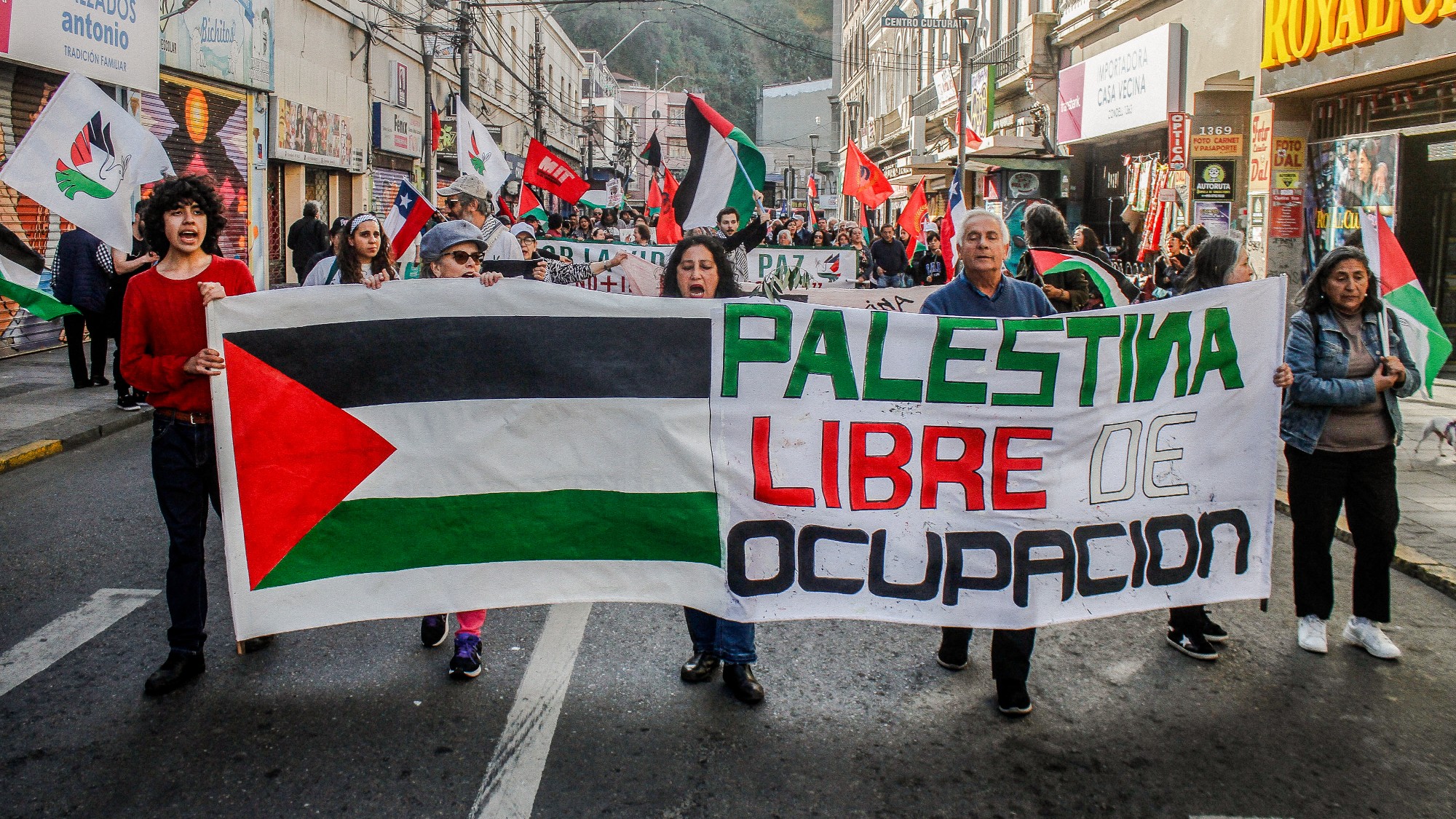
A free daily email with the biggest news stories of the day – and the best features from TheWeek.com
You are now subscribed
Your newsletter sign-up was successful
Despite being separated by more than 8,000 miles and a vast ocean, Chile has become one of the most vocal Palestinian supporters.
The Andean nation is "home to the largest Palestinian population outside of the Middle East", Al Jazeera reported. An estimated 500,000 Chilean citizens can trace their lineage back to the state.
The Gazan conflict has "hit close to home" for Chileans, who have "threaded" Palestinian culture into their everyday lives. This group of invested Chileans, and their allies, are now putting increased pressure on their government to act.
'Roots run deep'
Chile has become one of the "loudest regional voices" in Latin America condemning Israel's bombardment of Gaza, said NBC.
"Roots run deep" in Chile for the Palestinian community, with immigration to the nation beginning in the late 19th century, "when Christians fled the faltering Ottoman Empire", the broadcaster explained.
Despite most Chileans with Palestinian heritage identifying as Christian, this in "no way diminishes the national feeling" of support for the majority-Muslim state, the Morning Star said.
Support for Palestinians has extended outside of Chilean politics, seeping into other influential spheres in the South American nation.
Grammy-nominated artist Ana Tijoux has been involved in fundraising through "one of the country's largest pro-Palestinian rallies to date". The nation's "history of violence and displacement" resonates with her, said Al Jazeera.
Football also plays a "major role in the 'Chilestinian' community", said Scene Arabia in 2019. And this is manifested in the Palestino football team, which has been "their voice" since 1948.
The club's place in the Chilean Primera Division provides an opportunity to "braid together Palestinian activism with football fandom", said Al Jazeera. The club's colours of red, white, black and green reflect the Palestinian flag.
Community 'clamoring' for a ceasefire
The "visibility" of Chile's Palestinians "in some of the highest government offices" has impacted foreign policy in recent weeks. "Powerful" pressure groups are urging the government to act on Palestinian "human rights", with the public conversation taking a "more long-term historical perspective", reported Foreign Policy's Catherine Osborn.
This ultimately resulted in the nation's President Gabriel Boric speaking out to not only condemn Hamas, but also the "indiscriminate attacks against civilians carried out by the Israeli army in Gaza". The nation has also withdrawn its ambassador from Israel.
But for Chilean Palestinians, the fight will not stop until the people of Palestine are liberated. The community is "clamoring" for a ceasefire, said NBC, holding rallies and pushing for boycotts, as the conflict continues.
In an act of unity, Georges Abed, a Syrian-born priest in central Santiago, "the original landing zone for Palestinians in Chile", invited Chilean Muslims and the Palestinian ambassador to his mass. At the service, "keffiyehs, hijabs and Palestinian flags were sprinkled throughout the pews".
"Though we are completely separate geographically," ambassador Vera Baboun told the network, "you feel their presence, their connection to the land."
The Week
Escape your echo chamber. Get the facts behind the news, plus analysis from multiple perspectives.

Sign up for The Week's Free Newsletters
From our morning news briefing to a weekly Good News Newsletter, get the best of The Week delivered directly to your inbox.
From our morning news briefing to a weekly Good News Newsletter, get the best of The Week delivered directly to your inbox.
This article first appeared in The Week’s Global Digest newsletter. Sign up for a preview of the international news agenda, sent to your inbox every Monday.
A free daily email with the biggest news stories of the day – and the best features from TheWeek.com
Rebekah Evans joined The Week as newsletter editor in 2023 and has written on subjects ranging from Ukraine and Afghanistan to fast fashion and "brotox". She started her career at Reach plc, where she cut her teeth on news, before pivoting into personal finance at the height of the pandemic and cost-of-living crisis. Social affairs is another of her passions, and she has interviewed people from across the world and from all walks of life. Rebekah completed an NCTJ with the Press Association and has written for publications including The Guardian, The Week magazine, the Press Association and local newspapers.
-
 The EU’s war on fast fashion
The EU’s war on fast fashionIn the Spotlight Bloc launches investigation into Shein over sale of weapons and ‘childlike’ sex dolls, alongside efforts to tax e-commerce giants and combat textile waste
-
 How to Get to Heaven from Belfast: a ‘highly entertaining ride’
How to Get to Heaven from Belfast: a ‘highly entertaining ride’The Week Recommends Mystery-comedy from the creator of Derry Girls should be ‘your new binge-watch’
-
 The 8 best TV shows of the 1960s
The 8 best TV shows of the 1960sThe standout shows of this decade take viewers from outer space to the Wild West
-
 Is the Gaza peace plan destined to fail?
Is the Gaza peace plan destined to fail?Today’s Big Question Since the ceasefire agreement in October, the situation in Gaza is still ‘precarious’, with the path to peace facing ‘many obstacles’
-
 ‘The science is clear’
‘The science is clear’Instant Opinion Opinion, comment and editorials of the day
-
 The Board of Peace: Donald Trump’s ‘alternative to the UN’
The Board of Peace: Donald Trump’s ‘alternative to the UN’The Explainer Body set up to oversee reconstruction of Gaza could have broader mandate to mediate other conflicts and create a ‘US-dominated alternative to the UN’
-
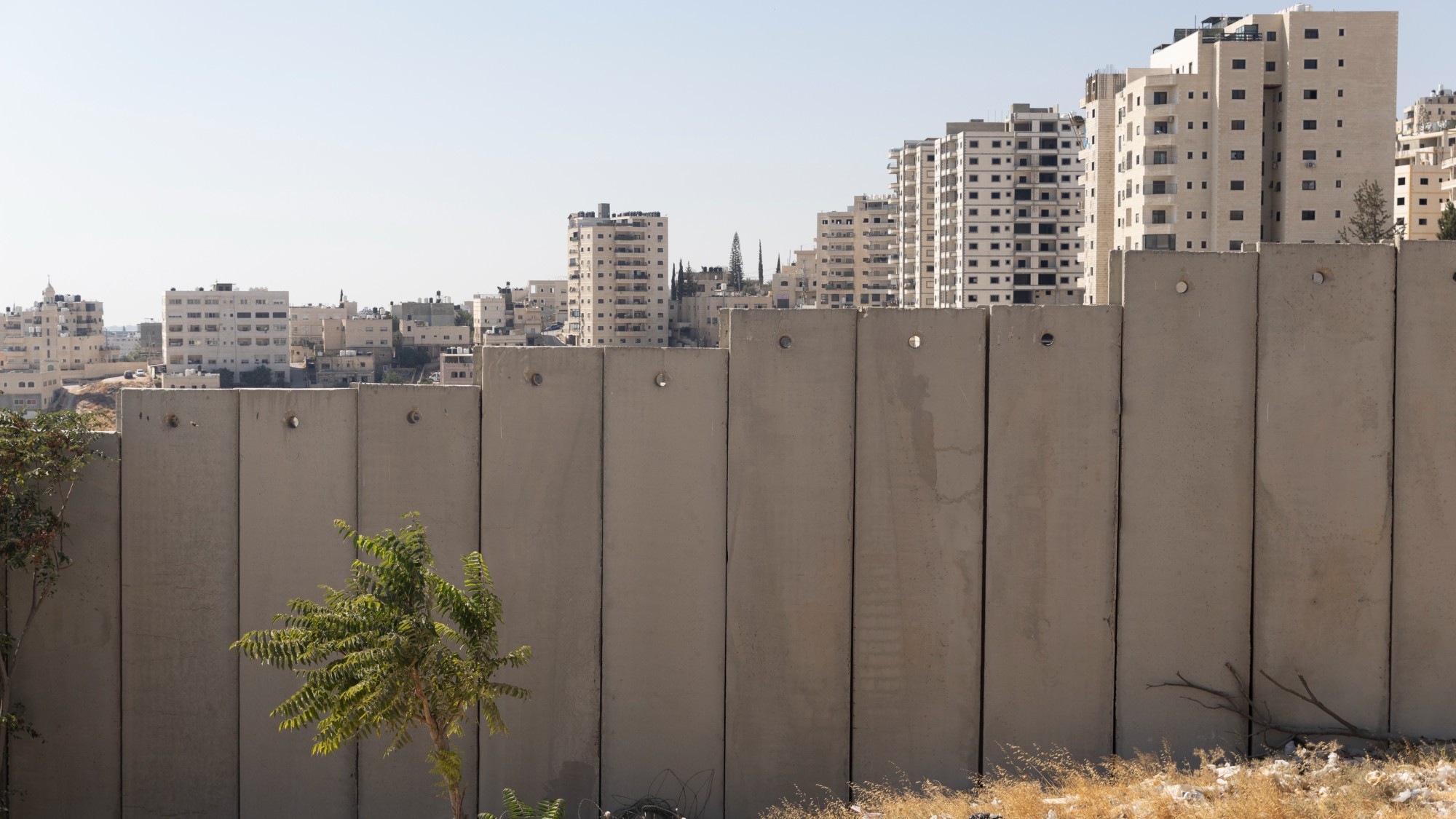 Israel’s E1 zone in the West Bank: the death of the two-state solution?
Israel’s E1 zone in the West Bank: the death of the two-state solution?The Explainer Controversial new settlement in occupied territories makes future Palestinian state unviable, critics claim
-
 ‘This is a structural weakening of elder protections’
‘This is a structural weakening of elder protections’Instant Opinion Opinion, comment and editorials of the day
-
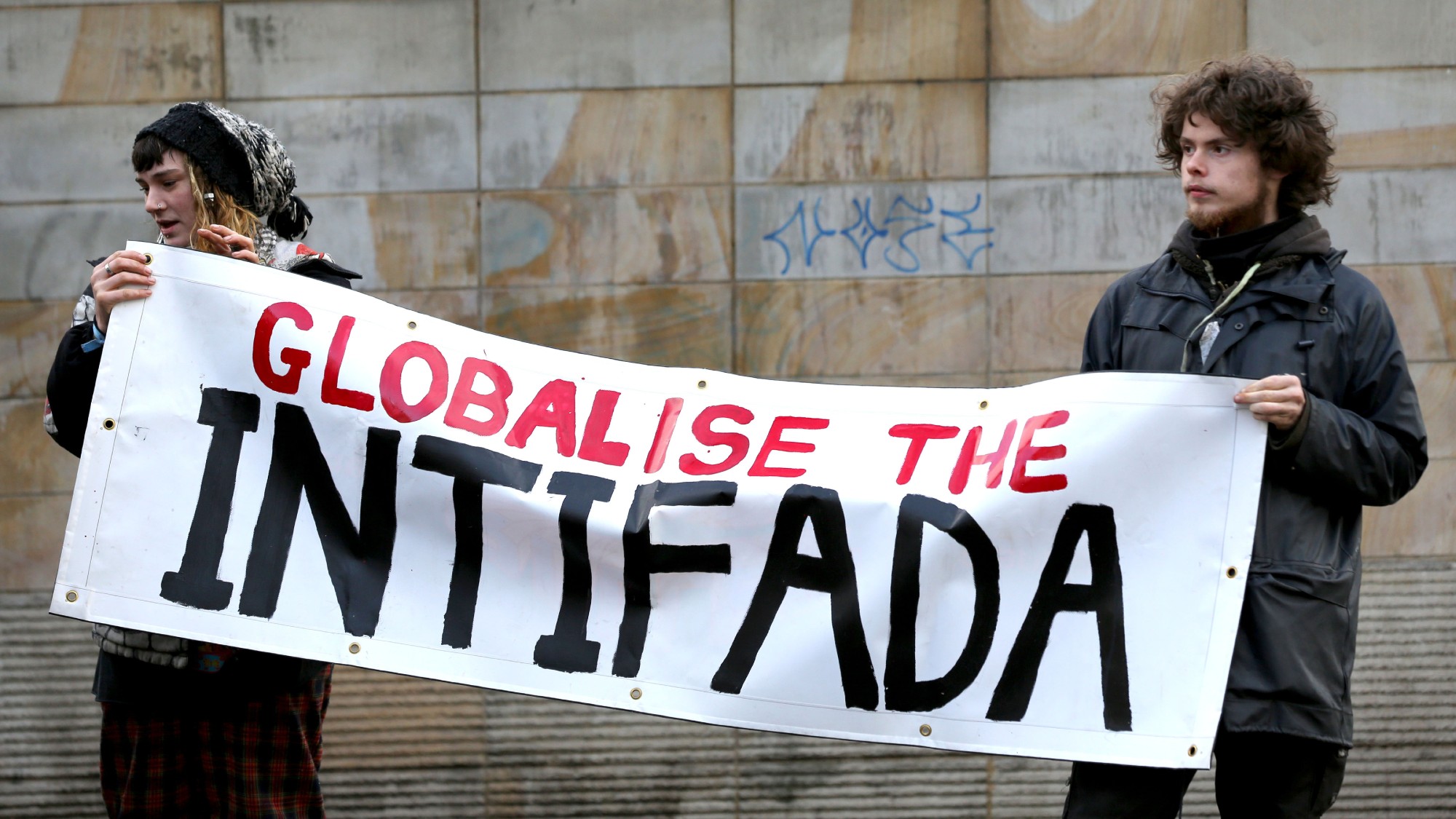 What is the global intifada?
What is the global intifada?The Explainer Police have arrested two people over controversial ‘globalise the intifada’ chants
-
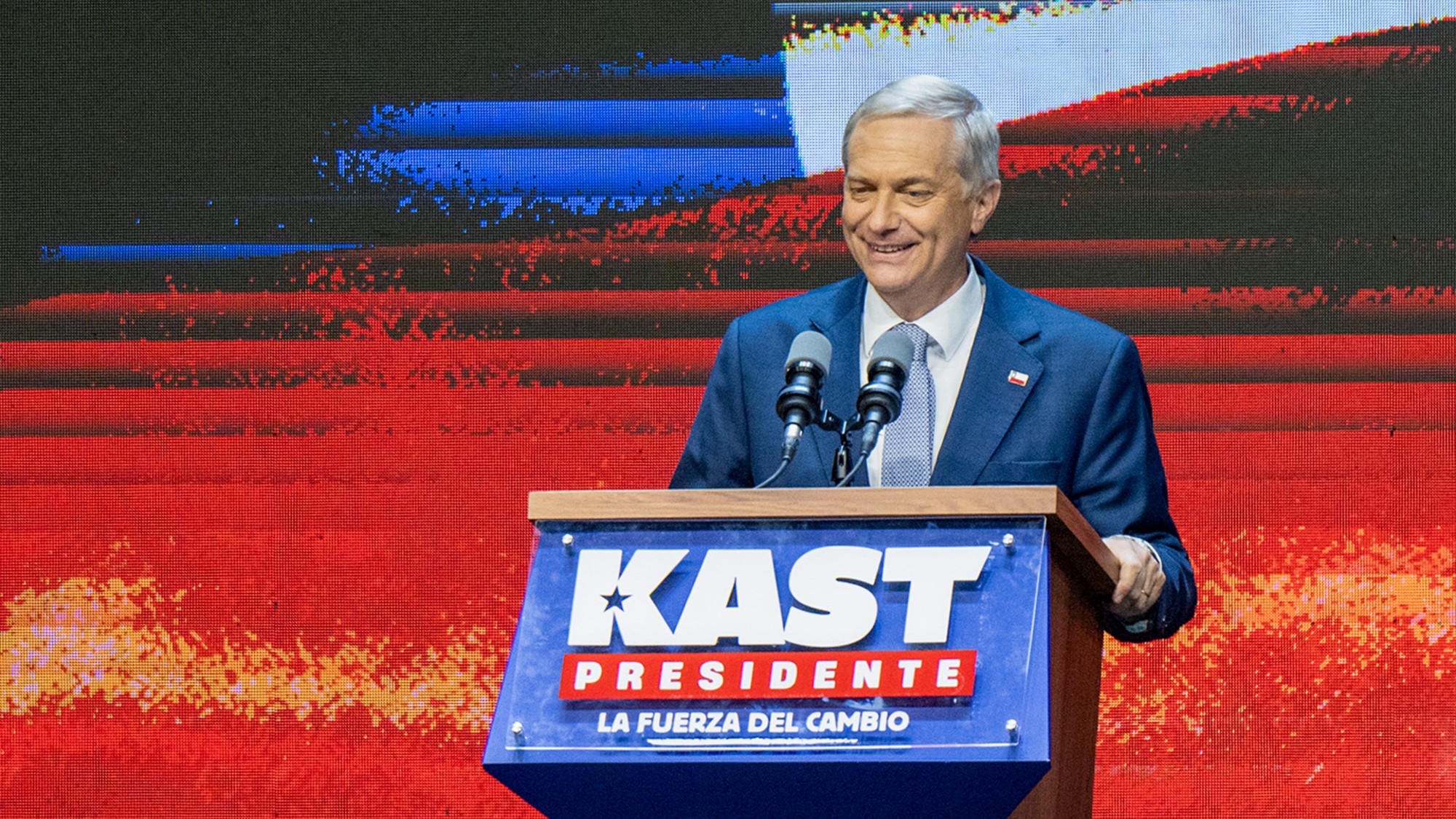 ‘Kast’s victory is a political and ethical earthquake’
‘Kast’s victory is a political and ethical earthquake’Instant Opinion Opinion, comment and editorials of the day
-
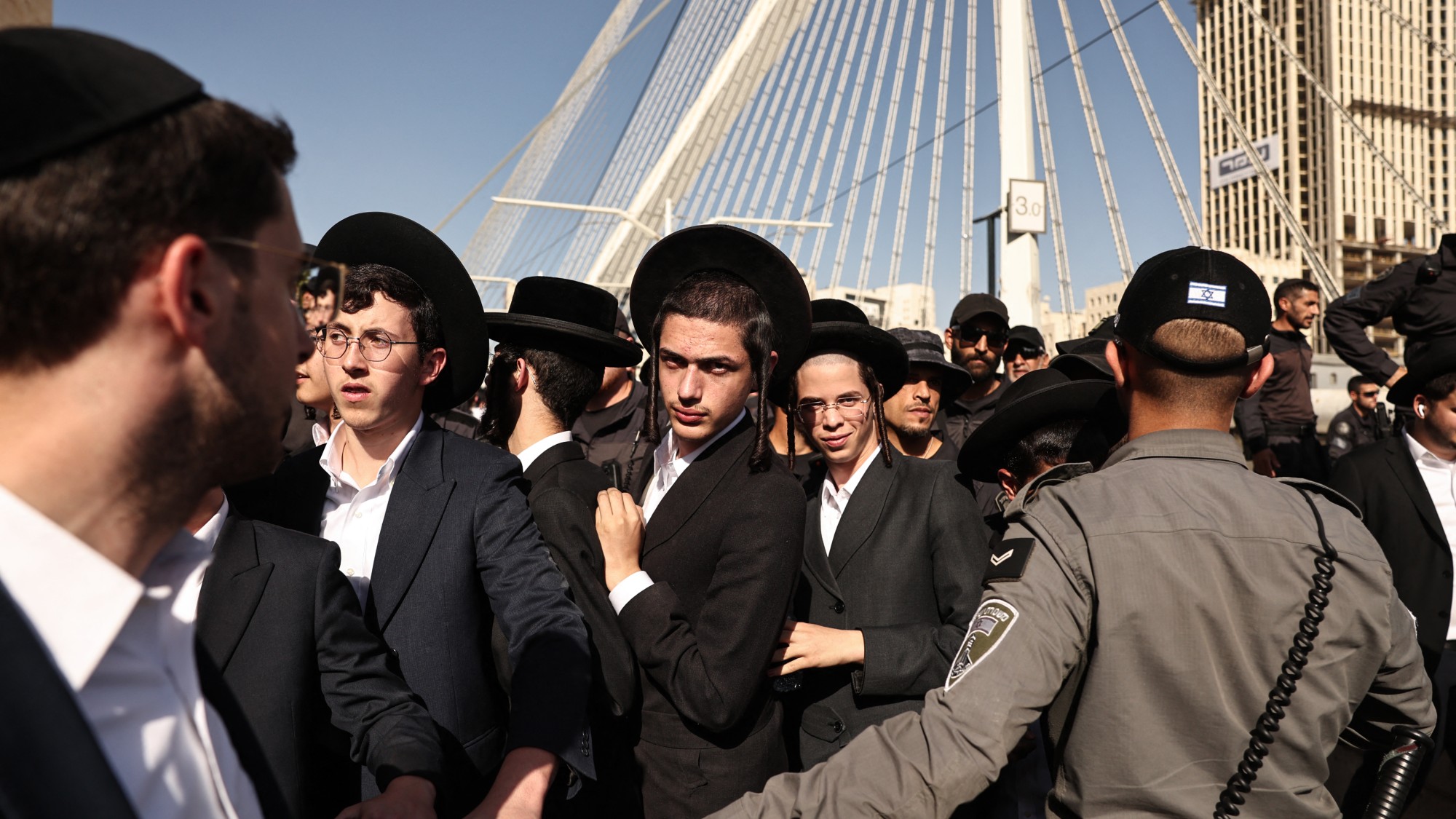 The issue dividing Israel: ultra-Orthodox draft dodgers
The issue dividing Israel: ultra-Orthodox draft dodgersIn the Spotlight A new bill has solidified the community’s ‘draft evasion’ stance, with this issue becoming the country’s ‘greatest internal security threat’